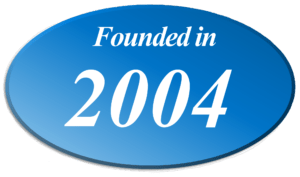 “Trusting relationships and reflection/rejuvenation are required for building strong networks and collaborations.” That’s the word from Patricia Brandes, executive director of the Barr Foundation. She didn’t say more funding, more collaboration, lower expenses or greater impact. She focuses on the three R’s – relationships, reflection and rejuvenation.
“Trusting relationships and reflection/rejuvenation are required for building strong networks and collaborations.” That’s the word from Patricia Brandes, executive director of the Barr Foundation. She didn’t say more funding, more collaboration, lower expenses or greater impact. She focuses on the three R’s – relationships, reflection and rejuvenation.
We had the opportunity to hear Brandes speak recently, and she encouraged the audience to value “being” as well as “doing”, acknowledging that “doing” is our culture’s more highly prized verb. Focusing on “being vs. doing” she asked “which will really move a nonprofit forward? Which really supports relationships? Where and how is trust built?”
While many funders invest in “doing” the Barr Foundation invests in “being.” It offers local nonprofit leaders the opportunity to answer the above questions through a fellows program Brandes launched in 2005. The Barr Fellowship is a leadership network designed to celebrate, connect, and empower diverse leaders across Boston.
The fellows program provides three-month paid sabbaticals for Boston nonprofit leaders. Each “fellow” can experience the 3 R’s: no work for three months. No calling in, no emails…. The one requirement: participate in two week-long group learning journeys to locations such as South Africa and Zimbabwe, Brazil, and Haiti.
Back at the nonprofit, board members and employees have to operate without their known leader. This provides new opportunities for interim leaders and the Barr Foundation helps out here too, providing these leaders with peer support and facilitated learning environments. The foundation has found that employees and board members step up in unexpected ways while their leader is on sabbatical.
This fellows program is an example of what Brandes calls “creative disruption.” A sabbatical is highly prized – but awfully disruptive! No more business as usual for the nonprofit, and even more importantly, for the leader. When on sabbatical leaders confront “being” as their primary experience. This often leads to personal discovery and recommitment to what brought them to work in the nonprofit sector in the first place. The group learning journeys take this change process to another level, bringing leaders together across differences and boundaries. As they share time unstructured time together fellows have the opportunity to “be” together and in that process build trust. These trusting relationships later inform new and deeper levels of partnership and collaboration.
Over time the deep value of this fellowship expresses itself. Boston now has a rich network of diverse leaders who have sustained relationships over the years, built social capital, and remained in the nonprofit sector. The foundation found that five years after their sabbatical, 75% of fellow were still at their organizations, 92% were still active in the civic sector in Boston, and 92% were still active in the civic sector nationally.
The results are radically different from the turnover and burnout experienced within many nonprofits. Investment anyone?
Mel and Pearl Shaw are the authors of “Prerequisites for Fundraising Success” and “The Fundraiser’s Guide to Soliciting Gifts.” They provide fundraising counsel to nonprofits. Visit them at www.saadandshaw.com. Follow them @saadshaw.









